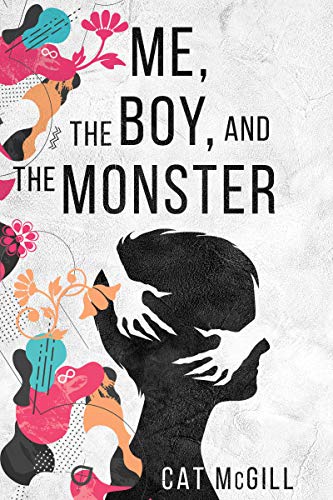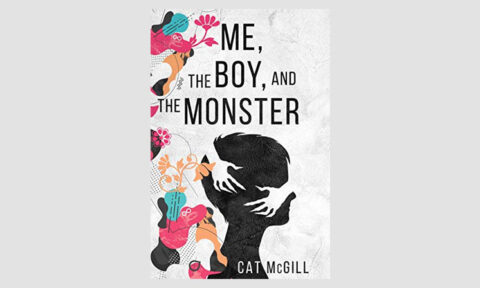Me, The Boy, and The Monster: Exploring the Psychology of Adoption and Trauma
By Cat McGill
This book is written by a mum, whose seven-year-old adopted son, ‘Tickle’, has a ‘monster’ living inside of him. She also has a husband and a 10-year-old birth daughter, ‘Fairy’. The book is an insightful account of her increasing knowledge and understanding of the impact of trauma, originating from the five and half years of abuse and neglect on Tickle.
The author, Cat McGIll, uses excerpts of a blog she wrote contemporaneously and gives an honest and sometimes harrowing account of Tickle’s struggles, including his behaviour and how she felt in the moment. It also discusses the impact of ‘The Monster’ on Fairy’s, her husband’s and her own physical, emotional and psychological wellbeing.
The blog accounts are interlaced with an overview of theory within the book; the explanations and unpicking of this theory as Cat journeys through her life with Tickle. The first chapter deals with trauma and the flight, fight, freeze and appease manifestations of it; it explores how it feels to live with it as a child and within a family. The very important second chapter deals with self-care, its utter necessity, and gives examples of how you can actually do this… this is not about bubble baths and finding time to watch the soaps!

Cat very effectively outlines the impact of trauma on the developing brain, the nervous system and the difference between procedural and traumatic memories. These issues are crucial to understand and whether you are able to respond empathically and avoid self-blame , as well as taking or placing responsibility in ways that add to the trauma all round. She gives an illustration of dissociation and a more in-depth exploration of managing challenging behaviours and why ‘The Monster’ does not know, or care, about behaviour modification programmes, but actually does respond to ‘Time-In’, PACE and being given some control in the form of choices.
The book also explores the route of behaviours in emotion and how emotional regulation can be facilitated. She also spends a little time addressing dissociation and the impact of a child disclosing historic abuse and the challenges of working with the system, providing insight into keeping the child’s needs as a focus.
My Opinion
This book is a very easy (I don’t mean in terms of subject matter) and compelling read; one that I would recommend (and refer you back to) whether you are starting your adoption assessment, looking for your child or in the thick of it! It is available for purchase for £8.99 on Amazon and can be found by clicking the here.

